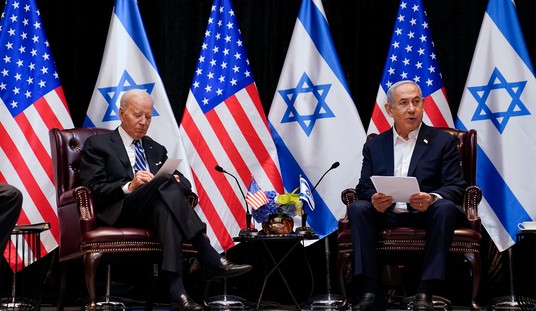https://youtu.be/THr4U2qHBwc
Five years ago, Tom Emmer was a Tea Party darling. An underdog in the 2010 contest for the Republican Party of Minnesota’s endorsement to run for governor, Emmer attracted support from the then-nascent movement. After securing the party’s nod, he came within one-half of one-percent in the general election, barely losing to billionaire department store heir Mark Dayton.
Emmer went from candidate to commentator, headlining the morning show at Twin Cities News Talk AM 1130 alongside libertarian talker Bob Davis. The duo often spent their mornings eviscerating the Republican establishment for failing to uphold conservative principles.
Then, an opportunity arose. Congresswoman Michele Bachmann announced that she would not seek re-election. Her 2012 win had been certified with the slimmest margin to date, less than her largely conservative district suggested should occur. Added to her high-profile and controversial style on the national stage, Bachmann’s underperformance on the ballot attracted pledges of support for her would-be Democratic challenger in 2014. By stepping aside, Bachmann rebalanced the scales for a fresh face.
Emmer offered his name for the job. Having established his brand both within the conservative choir and beyond, his campaign sailed to victory last year.
Then, everything changed.
Emmer’s first vote as a newly sworn-in member of Congress was cast to re-elect John Boehner as speaker of the House. It was a vote that Bachmann had taken on more than one occasion. But while her votes had been forgiven or overlooked entirely, Emmer’s was called out with no holds barred.
The Minnesota Tea Party Alliance, an organization coordinating multiple local groups, took to their digital channels to proclaim that Emmer had “betrayed” them:
[Voters] put a man in office with the expectation that he would fight for smaller government and more liberty. However, in his first real test vote as a conservative, Tom Emmer voted wrong and against the wishes of his conservative base by voting for John Boehner as Speaker.
Emmer seemed taken off guard, as did many long-time party activists and observers who wondered who else Emmer was supposed to support. State Senator Branden Petersen, generally considered among the most libertarian, anti-establishment members of his caucus, risked the ire of his supporters to speak out in defense of Emmer. He wrote:
Tom Emmer cast the only vote that made sense. Absent a challenger to Boehner, it is absurd to think that he would strip himself of all credibility with the power structure in the House in order to “make a statement.” Let’s be clear, the only outcome was that John Boehner was going to be elected. Let us suppose that he and others did vote someone/thing other than Boehner, then what? A second ballot is what happens. AND . . . eventually Boehner would be elected. Except now Emmer used his first vote to burn all bridges but NOT in favor of a better Speaker candidate, but in favor of NO alternative. There was not a better candidate for Speaker that actually DID THE WORK to campaign for Speaker.
The Minnesota Tea Party Alliance would hear none of it, and continued hammering away.
Most recently, Emmer took another vote that again raised their ire, opting to fund the Department of Homeland Security rather than protest President Obama’s executive amnesty.
Once again, the Tea Party slammed him:
Too often, politicians go out to Washington and forget the principles that got them there in the first place. After voting for Boehner for Speaker and funding Obama’s amnesty program, it looks like Tom has become out of touch with his conservative CD6 roots.
Emmer countered through several media outlets and by attending a metro meeting of a Tea Party Patriots group, which is not affiliated with the Alliance. His case rested upon the federal government’s constitutional obligation to protect the American people from threats posed by foreign aggressors. Obama’s unconstitutional executive amnesty should be fought, he said, but not at the expense of national security.
For many constituents in his district, the justification seemed more like a rationalization. The vote was seen as a simple black-and-white dichotomy. Either defund Obama’s executive amenity, or betray principle.
Are these constituents right? Is the standard they’ve set reasonable?
Principles may be black and white. But their application rarely is.
A confrontational political model popular among ideological activists advocates a black-and-white approach to dealing with incumbents. Vote our way or face a primary!
There are circumstances where such a model works. But even those who teach it will tell you that battles must be carefully chosen, evaluated in the context of an overall strategy to achieve specific goals.
Increasingly, however, confrontation between activists and incumbent politicians seems random, vicious, and unmoored from any sense of purpose.
It’s a phenomenon that was referenced in remarks by the keynote speaker at this past weekend’s Minnesota state convention of the Republican Liberty Caucus. An up-and-coming force out of Texas by the name of Corie Whalen Stephens demonstrated a grasp of how to apply principle effectively – not just harp about it.
Corie comes from a state that is, in many ways, the polar opposite of Minnesota. Texas is a state where Republicans are dominant and the liberty movement is large and effective. That’s reflected in the approach that Corie takes toward politics. She’s slow to anger, slow to condemn, and very slow to write people off.
It’s an attitude scarce in Minnesota, where atrophy and attrition within the Tea Party and allied movements have left fewer stalwarts fighting against steeper odds. Those who have remained active have become increasingly desperate to see results. More than that, the standard by which those results are measured has been raised ever higher.
We see this exhibited in the relationship between Tom Emmer and the Tea Party Alliance. When Emmer voted to re-elect Boehner as speaker of the House, it was immediately condemned as a betrayal in spite of the fact that Bachmann also voted for Boehner on multiple occasions. Why wasn’t she also called a traitor? Some may have objected here and there, but any assault wasn’t on the scale of that aimed at Emmer.
The point here is not that some double-standard has been employed, but rather that the standard has been raised from when Bachmann was in office. It seems likely that the standard has been raised due to an ever-increasing degree of frustration and disappointment among activists.
Many have grown less tolerant and more absolutist in response to wave after wave of horrendous policies and disappointing conduct from those elected to office.
Corie, who comes from a state that’s in far less desperate circumstances than Minnesota, exhibits a much more tolerant attitude toward “bad votes.” It’s not that she thinks bad votes should be ignored, but rather that particular legislators need to be evaluated in a larger context. Is this person advancing the cause of liberty overall? If the answer is no, then fire away. If the answer is yes, then help them succeed. If the jury is still out, hold your fire and try to shape an environment where their future votes will be more favorable.
Such nuance does not come easy to frustrated activists who feel like corned animals. They don’t want to think. They want to act. They want to fight. More importantly, they want someone to fight for them, and they want to see that fight more than they want to see tangible policy results. So when a politician like Emmer talks about maintaining bridges with leadership so he can be effective, he’s speaking another language from much of his constituents.
What may be missing from many activists’ consideration is the hidden dimension of caucus politics in Washington. Does Barack Obama’s executive amnesty need to be opposed? Absolutely. But who came up with the idea to put DHS funding in the crosshairs? Increasingly, the strategy seems like a preconceived move by the House leadership to run a bait and switch on principled conservatives.
A while back, I wrote a piece asking whether Boehner had finally grown a spine. It was a reaction to this strategy of holding DHS funding ransom in exchange for defunding the executive amnesty. It didn’t add up why a guy who was so adamantly opposed to Ted Cruz’s defund strategy for Obamacare would try something similar with Obama’s amnesty.
But it all makes sense now: Boehner never intended for the strategy to work. He wanted overly zealous members of his caucus, motivated by the demands of desperate activists, to take the bait and vote against national security. He could then launch attacks against those members as soon as the vote went down. That’s exactly what has happened.
If this theory is accurate, then by demanding that members of Congress vote against DHS funding, constituents unwittingly did the bidding of Boehner, who wins either way with this strategy. If Emmer had voted against DHS funding, then he would have been targeted with attack ads for being soft on public safety. Like it or not, that would have been an effective narrative because most people outside the activist choir don’t think DHS should be defunded. On the other hand, by voting for the DHS funding, Emmer has evoked the wrath of his conservative base, which has the effect of alienating him from that base. Such alienation benefits the moderate establishment by isolating Emmer and making him more susceptible to bad votes when it actually counts.
If the leadership in Congress really wanted to go after Obama’s executive amnesty, they would have done so when the continuing resolution was up back in December. Or, if they wanted to wait until this year, they could have gone after the funding directly instead of tying it to all of DHS.
This was a calculated move based on the leadership’s read of how both members of Congress and constituents back home would react. We’re all sitting at a high-stakes poker table, and the leadership is playing at a level where the cards held matter far less than the ability to read tells and then manipulate others’ reactions.
For a member like Emmer to make good votes, he needs more than chastising when he votes wrong, he needs a base of support that he can count on when he votes right. The strategy theorized above aims to erode that support, and thus erode the value proposition for voting well. The strategy rests upon the predictable knee-jerk response of activists, applying their elevated level of expectation to every single vote regardless of context.








Join the conversation as a VIP Member